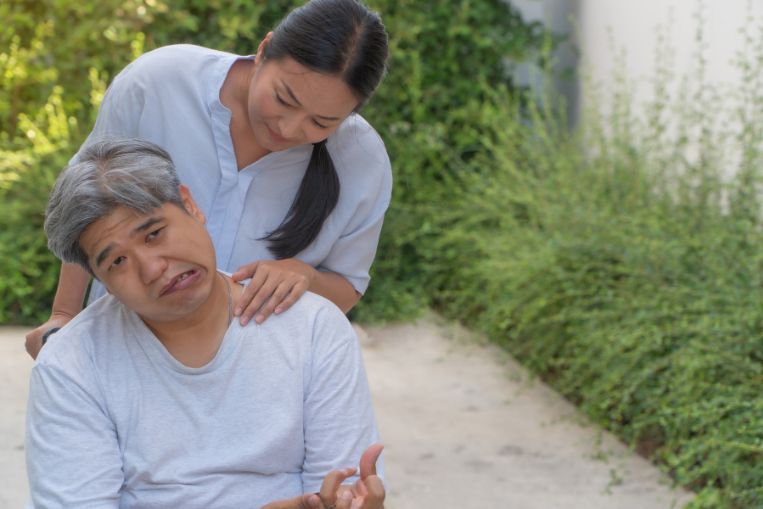Is your loved one struggling with the effects of paralysis? If you are looking for paralysis treatment in Pune that can help improve mobility and restore muscle function, then look no further than Physio9 Clinic. With our treatment, we have helped patients take control and make steady progress on their recovery journey.
Paralysis occurs when there is a loss of muscle function in one or more parts of the body, often caused by damage to the nervous system. This can result from conditions like stroke, spinal cord injury, or neurological disorders. Depending on the severity, paralysis may be partial or complete, and it can affect different areas of the body, including the face, arms, legs, or even the entire body.
Paralysis may develop suddenly due to trauma or illness or gradually as a result of a degenerative condition. Those affected by paralysis may experience a significant reduction in their ability to perform everyday tasks, which can deeply impact their independence and well-being.
At The Physio9 Clinic, our paralysis treatment focuses on rehabilitation and recovery. Our expert physiotherapists conduct a comprehensive assessment to develop a personalized treatment plan that addresses each patient's unique needs. We use a combination of advanced physiotherapy techniques, movement therapy, and strengthening exercises to improve mobility, muscle tone, and coordination.
Our holistic approach to paralysis treatment aims to improve motor skills, stimulate the nervous system, and promote gradual recovery of movement. We also provide education and support to patients and their families, helping them manage the challenges of living with paralysis.
If your loved one is facing the challenges of paralysis, schedule a consultation with our expert at Physio9 Clinic to learn more about our specialized paralysis treatment in Pune.
FAQ's
The best treatment for paralysis depends on the underlying cause and severity. It usually includes a combination of physical therapy, occupational therapy, and medications to manage symptoms. Assistive devices, such as braces or wheelchairs, may help with mobility. In some cases, surgery may be needed, particularly for spinal cord injuries.
The recovery time for paralysis varies widely depending on its cause and severity. For conditions like Bell’s palsy, recovery can take a few weeks to months. In cases of spinal cord injuries or stroke, recovery may take several months to years, and some patients may not fully recover.
Neurorehabilitation-focused physiotherapy is considered best for paralysis. It includes exercises to improve strength, coordination, and muscle control. Techniques like functional electrical stimulation (FES), gait training, and passive and active range of motion exercises are commonly used.
Yes, in some cases, a paralyzed patient can regain the ability to walk, depending on the cause of the paralysis and the extent of nerve damage. Intensive rehabilitation, including gait training, robotic-assisted walking devices, and physical therapy, can help improve mobility.
Yes, many people have fully or partially recovered from paralysis, especially if it is due to conditions like Guillain-Barré syndrome or Bell’s palsy. However, recovery depends on the type and severity of the paralysis, and in some cases, full recovery may not be possible.
Yes, physiotherapy can effectively treat muscle weakness by strengthening muscles, improving flexibility, and enhancing movement coordination. A tailored exercise program can help restore muscle function and prevent further atrophy.
Yes, many paralyzed people can sit, especially if they have upper body strength and control or are assisted with supportive devices like wheelchairs or special seating aids to ensure proper posture and prevent pressure sores.
Exercises that focus on muscle strengthening, range of motion, and mobility training are best for paralysis patients. These include passive stretching, resistance training, and gait exercises. Functional electrical stimulation (FES) is also helpful in activating paralyzed muscles.
Yes, physiotherapy plays a critical role in treating paralysis. It helps in improving mobility, preventing muscle atrophy, enhancing circulation, and promoting neural recovery through various exercises and rehabilitation techniques.
Yes, a paralyzed person can usually talk unless the paralysis affects the muscles responsible for speech, such as in certain cases of brain injury or ALS (Amyotrophic Lateral Sclerosis). Speech therapy may be needed if speech is impaired.
For more information, schedule a consultation with our expert at Physio9 Clinic for paralysis treatment in Pune.







